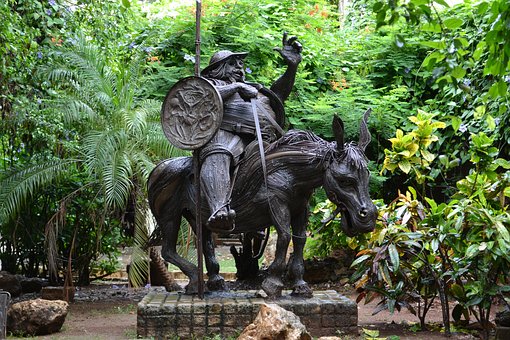Sancho Panza, the villain

In one of his many dialogues with Sancho Panza, the ingenious gentleman Don Quixote of La Mancha advises him not to eat garlic or onions, lest his «villainy» be discovered by smell. So was the faithful squire a bad person? Anyone who has read Miguel de Cervantes’ masterpiece will immediately answer no… and they would be right.
It turns out that at the time when this classic of Spanish literature was written, the villain had a different meaning from the one attributed to it today, which is synonymous with evil and is the antagonist of the hero in literary adventures.
But in the Middle Ages, the villain was the honest and industrious man, although rustic and considered of little education and culture, because they were the peasants, inhabitants of villages and small towns of a rural environment, and whose function was reduced to producing the food that was wasted by the lords. If we go back to Don Quixote and the play of Sancho Panza on the Barataria Island, we will see that Sancho was also very ingenious and had a natural intelligence that was not negligible, which contrasted with his simplicity.
Little by little, in their contempt for people of lower rank, the «noblemen» derived the meaning of the word towards distrust, a representation of evil, of those who act against the laws and cause harm to society; and from the literary works of fiction now emerge some villains of such exaggerated evil that they are not credible, and others who become sympathetic despite their actions against the rules, becoming a bad example for children.
Derived from the Latin villanus, the word means: inhabitant of a villa, that is, a country house; one who lives in a villa or village, as opposed to a nobleman or gentleman.
Among the words derived from villanus are villancicos, religious songs used by the evangelists of the 5th and 6th centuries to spread the faith among the rural population, who were illiterate and therefore unable to receive the Gospel in written form.
Finally, if you have not already done so, do not miss reading The Ingenious Gentleman Don Quixote of La Mancha, by Miguel de Cervantes Saavedra, and Sancho Panza on the Barataria Island, by Alejandro Casona, two essential texts for those of us who speak Spanish.
Translated by Luis E. Amador Dominguez



